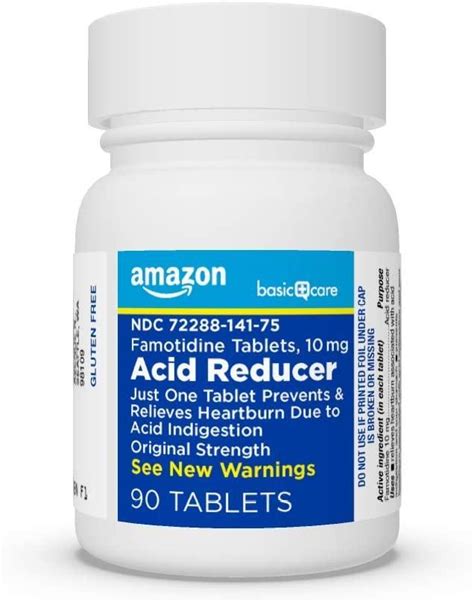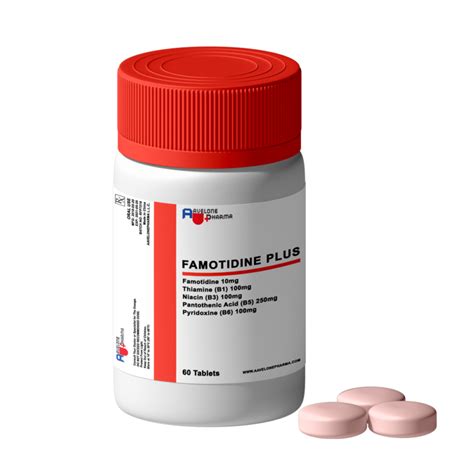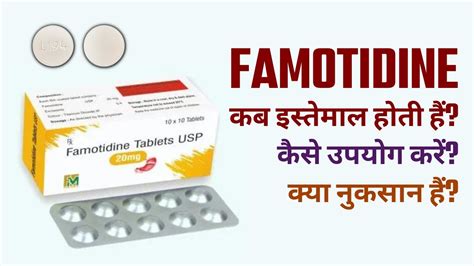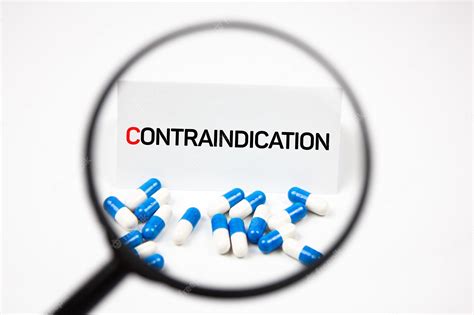Intro
Learn about Famotidine 40mg Tablet, a heartburn relief medication, and its uses, dosage, side effects, and interactions, including acid reducer and antacid properties for treating GERD and peptic ulcer disease.
The world of pharmaceuticals is vast and complex, with numerous medications available to treat a wide range of conditions. One such medication is the famotidine 40mg tablet, which has been widely used to treat various gastrointestinal issues. In this article, we will delve into the world of famotidine, exploring its uses, benefits, and potential side effects. Whether you are a healthcare professional or simply someone looking to learn more about this medication, this article aims to provide a comprehensive overview of the famotidine 40mg tablet.
Famotidine is a type of histamine-2 (H2) blocker, which works by reducing the amount of acid produced in the stomach. This can be particularly beneficial for individuals who suffer from conditions such as gastroesophageal reflux disease (GERD), Zollinger-Ellison syndrome, and peptic ulcers. By reducing stomach acid, famotidine can help alleviate symptoms such as heartburn, bloating, and abdominal pain. With its ability to provide quick and effective relief, it's no wonder that famotidine has become a popular choice among healthcare professionals and patients alike.
The importance of understanding medications like famotidine cannot be overstated. With the rise of self-medication and online pharmacies, it's easier than ever for individuals to access a wide range of medications without proper guidance. However, this can also lead to misuse and potential harm. By educating ourselves about the uses, benefits, and potential risks of medications like famotidine, we can ensure that we are using them safely and effectively. Whether you are a patient or a healthcare professional, it's essential to stay informed about the latest developments in the world of pharmaceuticals.
What is Famotidine?

How Does Famotidine Work?
Famotidine works by blocking the action of histamine, a chemical that stimulates the production of stomach acid. By reducing the amount of acid produced in the stomach, famotidine can help alleviate symptoms such as heartburn, bloating, and abdominal pain. This can be particularly beneficial for individuals who suffer from conditions such as GERD, Zollinger-Ellison syndrome, and peptic ulcers. With its ability to provide quick and effective relief, famotidine has become a popular choice among healthcare professionals and patients alike.Benefits of Famotidine

Potential Side Effects of Famotidine
While famotidine is generally well-tolerated, there are some potential side effects to be aware of. These can include: * Headache * Dizziness * Diarrhea * Constipation * Nausea and vomiting * Abdominal pain It's essential to note that these side effects are typically mild and temporary, and may disappear on their own with continued use of the medication. However, if you experience any severe or persistent side effects, it's essential to seek medical attention immediately.Uses of Famotidine

Dosage and Administration
The dosage and administration of famotidine will depend on the individual and the condition being treated. Typically, the recommended dosage is 20-40mg per day, taken orally with water. It's essential to follow the instructions provided by your healthcare professional and to take the medication exactly as directed. This can help ensure that you get the most out of your treatment and minimize the risk of side effects.Interactions and Contraindications

Precautions and Warnings
While famotidine is generally well-tolerated, there are some precautions and warnings to be aware of. These can include: * Allergic reactions, such as hives, itching, and difficulty breathing * Severe side effects, such as abdominal pain, diarrhea, and vomiting * Interactions with other medications, such as antacids, blood thinners, and certain antibiotics It's essential to seek medical attention immediately if you experience any severe or persistent side effects, or if you have any concerns about your treatment.Conclusion and Final Thoughts

What is the recommended dosage of famotidine?
+The recommended dosage of famotidine is 20-40mg per day, taken orally with water.
What are the potential side effects of famotidine?
+The potential side effects of famotidine include headache, dizziness, diarrhea, constipation, nausea and vomiting, and abdominal pain.
Can I take famotidine with other medications?
+It's essential to discuss your medical history and any medications you are currently taking with your healthcare professional before starting treatment with famotidine, as there may be potential interactions.
We hope this article has provided you with a comprehensive overview of the famotidine 40mg tablet. Whether you are a healthcare professional or simply someone looking to learn more about this medication, we encourage you to share your thoughts and experiences in the comments below. By working together, we can ensure that we are using medications like famotidine safely and effectively, and providing the best possible care for our patients.
